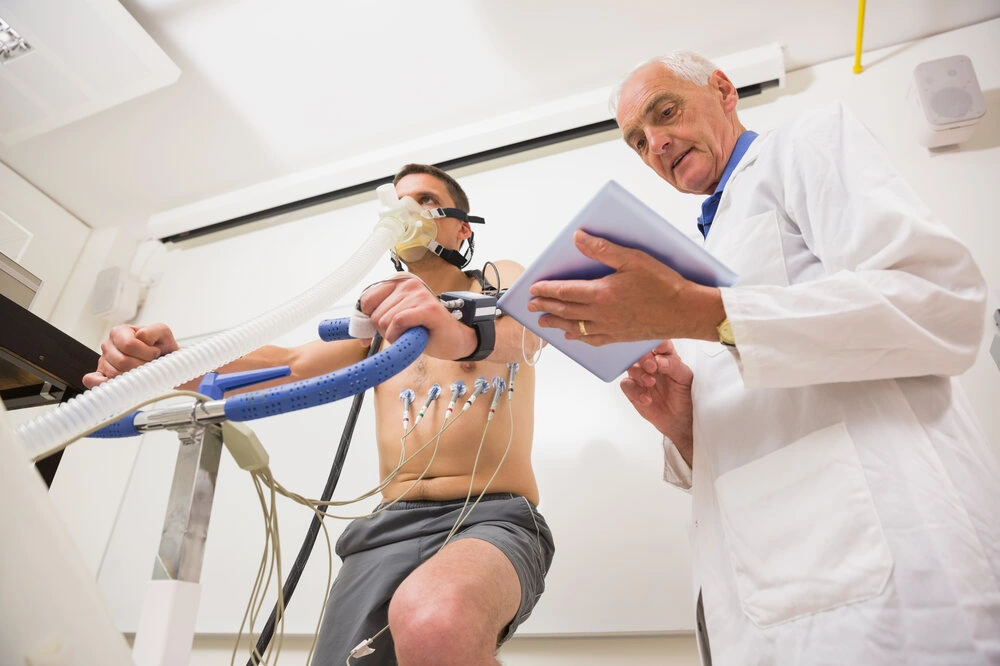A stress test is a valuable diagnostic tool used to evaluate how well your heart works during physical activity. It helps identify issues such as irregular heart rhythms or insufficient blood flow to the heart. However, receiving abnormal results can be concerning and leave you wondering what the next step is. At Complete Cardiac and Vascular Care, we guide patients through the process and ensure they take the right steps toward improving heart health.
In this blog, we’ll explain what an abnormal stress test result means, what follow-up tests or treatments may be necessary, and how to proceed for better heart care.
What Does an Abnormal Stress Test Mean?
An abnormal stress test typically indicates that your heart may not be receiving enough oxygenated blood during physical exertion. This could be due to blockages in your coronary arteries, irregular heartbeats, or other heart-related conditions that limit blood flow.
While an abnormal stress test is not always a definitive diagnosis of a heart condition, it is a signal that further investigation is needed to pinpoint the exact cause of the abnormality.
Next Steps After an Abnormal Stress Test
If your stress test results are abnormal, your doctor will likely recommend additional tests or procedures to further assess your heart’s condition. Some common follow-up steps include:
- Echocardiogram (Echo) An echocardiogram is an ultrasound of the heart that allows your doctor to examine the heart’s structure and how well it’s pumping blood. It’s a non-invasive test that provides a more detailed view of the heart’s function after an abnormal stress test.
- Nuclear Stress Test A nuclear stress test is a more advanced version of a standard stress test. It involves the injection of a small amount of radioactive material to track blood flow to your heart during physical activity and at rest. This test can highlight areas of the heart that may not be receiving adequate blood flow.
- Coronary Angiography If your doctor suspects a blockage in the coronary arteries, a coronary angiography may be recommended. This procedure involves threading a catheter through a blood vessel, usually in the arm or leg, and directing it toward the heart. A contrast dye is injected, allowing the doctor to see detailed X-ray images of the coronary arteries and identify any blockages or narrowing.
- Cardiac MRI Cardiac MRI utilizes magnetic fields and radio waves to produce detailed images of the heart.
- This test provides in-depth information about the heart’s structure and function, allowing doctors to assess the extent of any damage or abnormalities detected during the stress test.
- Lifestyle Changes Sometimes, an abnormal stress test may lead to recommendations for lifestyle changes, such as improved diet, increased physical activity, or managing stress levels. Your doctor may suggest these changes as part of a preventive approach to avoid more serious heart issues.
Treatment Options
If additional testing confirms heart disease or other conditions, there are several treatment options that may be recommended based on the severity of the problem:
- Medications
- Your doctor may prescribe medications to help manage symptoms, lower blood pressure, or reduce cholesterol. Common medications include beta-blockers, ACE inhibitors, and statins.
- Minimally Invasive Procedures
- In cases of blocked arteries, minimally invasive procedures such as angioplasty or stent placement may be necessary to restore proper blood flow to the heart.
- Surgery
- For more severe cases, coronary artery bypass grafting (CABG) surgery might be recommended to bypass the blocked arteries and improve blood flow to the heart.
- Cardiac Rehabilitation
- Following an abnormal stress test and subsequent treatments, cardiac rehabilitation can help you recover and improve your overall heart health. This program combines monitored exercise, education, and counseling to support long-term heart health.
Managing Your Heart Health
Regardless of your follow-up results, managing heart health is essential. Taking proactive steps such as adopting a heart-healthy diet, exercising regularly, reducing stress, and avoiding smoking can improve heart function and prevent further complications. Partnering with a trusted healthcare provider like Complete Cardiac and Vascular Care ensures you receive the guidance and treatment necessary to manage your heart condition effectively.
Conclusion
An abnormal stress test doesn’t always mean serious heart issues, but it does warrant further investigation. Whether it’s through additional testing or lifestyle adjustments, understanding the next steps is crucial in addressing potential heart problems. At Complete Cardiac and Vascular Care, we are dedicated to helping you navigate your heart health journey and providing personalized care for optimal results.
If you’ve recently had an abnormal stress test, contact us today to schedule a consultation and explore your next steps toward a healthier heart.





